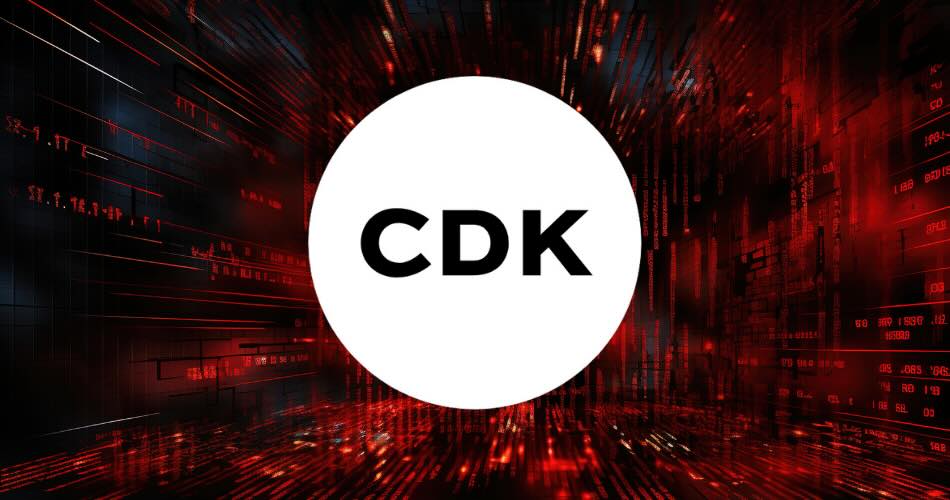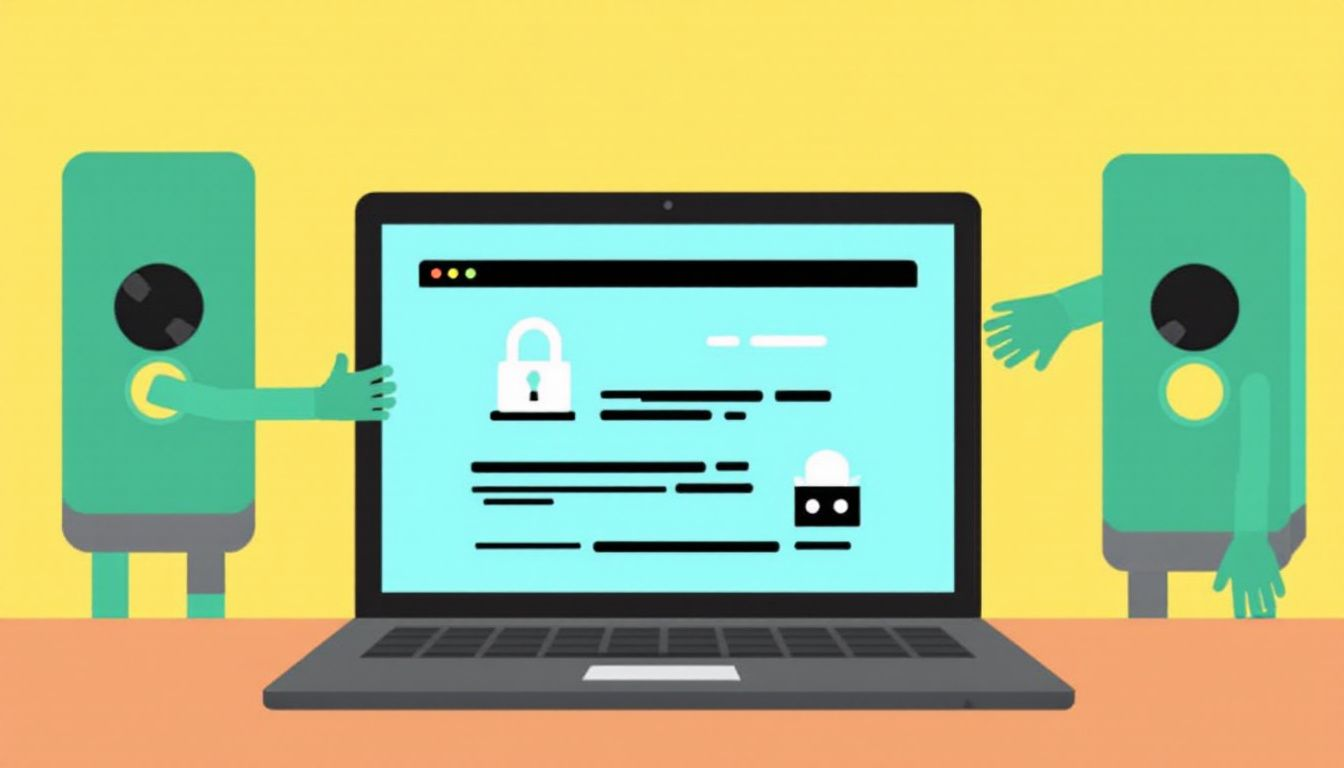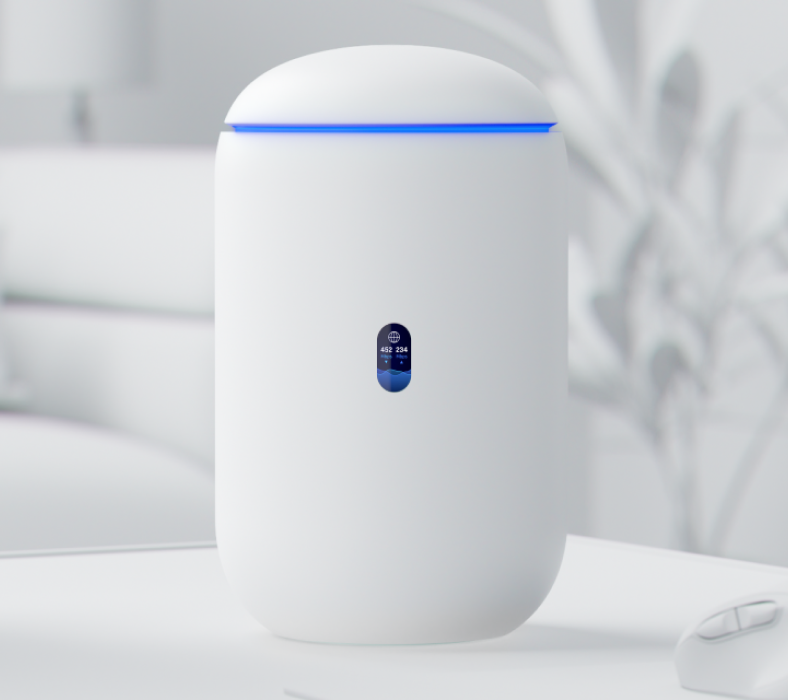
The CDK Global cyber attack on June 18 and 19, 2024, severely disrupted car dealerships across the United States due to vulnerabilities in CDK software. Let’s explore the phases of the CDK cyber attack, initial breach methods like phishing and software vulnerabilities, and the significant impacts on car dealerships. We’ll also discuss CDK Global’s response, recovery efforts, and strategies to protect your business from similar attacks.
Key Takeaways
- The CDK Global cyber attack, initiated through phishing and exploiting software vulnerabilities, severely disrupted operations for over 15,000 car dealerships across North America, leading to estimated losses exceeding $1 billion.
- Robust cybersecurity measures, including regular software updates, employee training on phishing, and a strong focus on data security, are essential to prevent future incidents and mitigate risks associated with cyber attacks.
- Adopting a zero-trust security model and implementing stringent access controls can significantly enhance a business’s defense against unauthorized access and cyber threats.
Overview of the CDK Global Cyber Attack
The CDK Global cyber attack unfolded in two harrowing phases on June 18 and 19, 2024. The attack highlighted significant vulnerabilities in CDK software, which were exploited by the attackers to cause widespread disruptions. The initial breach on June 18th disrupted the operations of over 10,000 car dealerships across the United States, with a second cyberattack following swiftly the next day, exacerbating the situation. The attackers’ primary objective was to deploy ransomware, which ultimately resulted in the encryption of critical files and a demand for a hefty ransom of $10 million.
The fallout from the attack was immense. Approximately 15,000 car dealership operations came to a grinding halt, causing widespread chaos and disruption across the automotive sector in North America. Dealerships were unable to process transactions, manage inventory, or communicate with customers effectively, leading to significant operational paralysis.
CDK Global responded to the cyber incident by shutting down its systems to contain the breach. Despite these efforts, recovery has been slow, and the company is still working to restore full functionality.
Initial Attack Vectors
The cyber attack on CDK Global was orchestrated through a combination of phishing attempts and exploitation of software vulnerabilities. These initial attack vectors served as the gateway for the cyber criminals to infiltrate CDK’s network, laying the groundwork for the subsequent deployment of ransomware, following the cdk global cyberattack.
Phishing campaigns tricked CDK Global employees into providing access credentials or installing malicious software. Simultaneously, attackers exploited unpatched software vulnerabilities to gain unauthorized access to the network, compromising the integrity of their IT systems.
The confluence of these methods created a seamless pathway for the attackers to breach CDK Global’s defenses.
Phishing Attempts
Phishing attempts played a pivotal role in the initial phase of the CDK Global cyber attack. By deploying sophisticated phishing campaigns, the attackers were able to deceive employees into divulging sensitive information or clicking on malicious links. This method of social engineering proved to be highly effective in gaining the initial foothold needed to infiltrate CDK’s network.
The increase in phishing scams reported by automotive dealerships after the CDK Global ransomware attack highlights the persistent threat posed by these tactics. Phishing enables cyber criminals to bypass traditional security measures and access valuable data.
Software Vulnerabilities
In addition to phishing attempts, the attackers capitalized on unpatched vulnerabilities in CDK software to breach CDK Global’s IT systems. Exploiting these weaknesses allowed them to gain unauthorized access to sensitive information and escalate their privileges within the network.
Tools like credential dumping were employed to steal credentials stored in the system’s memory, facilitating lateral movement across the network and access to additional systems and sensitive information. This highlights the critical importance of regularly updating software to mitigate risks associated with unpatched vulnerabilities.
Spread and Escalation within CDK Systems
Once inside CDK Global’s network, the attackers employed various tactics to traverse the IT environment and escalate their privileges. Lateral movement and privilege escalation together significantly compromised CDK Global’s cybersecurity defenses.
Exploiting weak permissions and using tools for lateral movement, the attackers navigated the network, accessing multiple systems and critical data. This made it challenging to contain the breach as they entrenched themselves within CDK Global’s IT infrastructure.
Lateral Movement
Lateral movement refers to the techniques attackers use to navigate through a network after gaining initial access. Inside CDK Global’s network, attackers used credential dumping and exploited weak permissions to move laterally.
Successful lateral movement enabled the attackers to escalate their privileges and access critical systems, significantly increasing their control over the compromised network. Understanding these techniques helps enhance security measures to prevent future attacks.
Privilege Escalation
Privilege escalation is a critical phase in cyber attacks where attackers gain elevated access to systems. In the case of CDK Global, attackers exploited unpatched software vulnerabilities and leveraged existing administrative privileges to significantly increase their access levels within the systems.
This underscores the need to keep software updated and implement robust security measures to prevent attackers from gaining elevated access. Without these precautions, businesses remain vulnerable to severe cybersecurity incidents.
Deployment of Ransomware
The final stage of the CDK Global cyber attack involved the deployment of ransomware, a tactic commonly used by cyber criminals to extract ransom payments from their victims. Ransomware encrypted critical files within the network, making them inaccessible and demanding a ransom for decryption keys.
The impact of this ransomware attack was devastating, disrupting operations for approximately 15,000 dealerships across North America and affecting various operational areas within these businesses. The attackers initially demanded a ransom payment of $10 million, further compounding the financial distress caused by the attack.
Impact on Car Dealerships
Car dealerships faced significant operational disruptions due to the ransomware attack. The shutdown of CDK’s systems hindered their ability to manage inventory, process transactions, and communicate with customers. This operational paralysis rippled through, affecting sales, customer satisfaction, and overall business performance.
The inability to schedule services, manage vehicle inventory, and process transactions left many dealerships struggling to maintain their daily operations, highlighting the critical reliance on CDK Global’s services, which are delivering processing capabilities. Such disruptions underscore the importance of having robust cybersecurity measures in place to safeguard against similar attacks.
Financial Losses and Disruptions
The financial losses incurred by car dealerships due to the CDK Global cyber attack were staggering. Initial estimates indicated that dealerships experienced $605 million in losses within the first two weeks of the attack, with potential additional losses amounting to $339 million. The total estimated losses exceeded $1 billion, emphasizing the severe economic impact of the ransomware attack.
Financial disruptions extended beyond immediate revenue losses to broader economic implications for the automotive industry. The attack highlighted businesses’ vulnerability to cyber threats and the need for comprehensive cybersecurity measures.
Response and Recovery Efforts
In the wake of the cyber attack, CDK Global took immediate action to contain the breach and mitigate further damage. They promptly shut down their IT systems, telephones, and applications, effectively halting operations to prevent the spread of the ransomware. This decisive action was crucial in limiting the extent of the damage and laying the groundwork for the recovery process.
CDK Global has since been working diligently to restore its systems, collaborating with third-party cybersecurity experts to enhance their defenses and prevent future incidents. However, the recovery process has been challenging, with no confirmed timeline for full restoration of functionality. This ongoing effort underscores the importance of having robust incident response plans and contingency measures in place.
Immediate Containment Measures
CDK Global’s immediate containment measures involved shutting down their IT systems and communication channels to address the breach. This swift action was crucial in preventing further damage during recovery efforts, despite the sophistication of the breach.
The phased restoration strategy being implemented aims to fully restore systems by July 4, 2024, ensuring that all dealer connections are live and operational. These measures highlight the critical importance of having a well-defined and executable containment plan to address cyber incidents effectively.
Long-Term Recovery Strategies
The long-term recovery strategies for CDK Global focus on fully restoring systems and services by July 4th, 2024. This includes ensuring that all dealer connections are operational by July 3 or July 4, 2024. However, dealerships may face challenges in restoring their records due to data gaps and potential hostage situations with the attackers.
Implementing strong security measures and maintaining continuous vigilance are crucial for preventing future incidents. Regular data backups help mitigate the impact of ransomware attacks and facilitate swift restoration without paying a ransom. Dealerships should consult qualified experts to develop effective long-term data security plans and ensure operational resilience.
Lessons Learned from the CDK Global Cyber Attack
The CDK Global cyber attack has provided several critical lessons for businesses across industries. Robust cybersecurity protocols are crucial to safeguard systems against threats and minimize breach risks. Businesses must enforce strict cybersecurity practices for third-party vendors to mitigate interconnection risks.
Partnering with trusted cybersecurity providers offers access to the latest threat intelligence and support for compliance, helping organizations stay ahead of evolving cyber threats. Implementing a strong patch management procedure is also crucial for protecting against known security vulnerabilities.
Importance of Data Security
Investing in data security is paramount, as the costs associated with a significant data breach can far exceed the investment in preventative measures. The risks associated with compromised data include identity theft and financial fraud, underscoring the critical need for robust cybersecurity measures.
Organizations should conduct regular security audits to identify weaknesses and ensure compliance with industry standards. Implementing a strong cybersecurity framework, including zero-trust security models and privileged access management, can significantly enhance data protection and mitigate the risk of breaches.
Role of Regular Backups
Regular backups serve as a critical line of defense against ransomware attacks, enabling businesses to restore their data without paying a ransom. By ensuring that data is backed up regularly, businesses can significantly reduce downtime and operational disruptions caused by ransomware incidents.
Regularly testing data backups is crucial to ensure that recovery processes are effective and operational during incidents. The key benefits of regular backups include quick recovery, minimized data loss, and reduced impact on business operations during a ransomware attack.
Protecting Your Business from Similar Attacks
To safeguard your business from similar cyber attacks, implementing a zero-trust and zero-knowledge security framework is essential.
This approach involves:
- Continuously validating all users and devices before granting access, thus minimizing the risk of unauthorized access.
- Conducting regular assessments to identify vulnerabilities.
- Reducing online exposure to mitigate ransomware risks.
By following these strategies, you can enhance your business’s security posture.
Adopting robust cybersecurity measures, such as regular software updates, employee training on recognizing phishing attempts, and maintaining strong access controls, can significantly enhance your defenses against cyber threats.
By prioritizing data security and implementing comprehensive cybersecurity strategies, businesses can protect themselves from the devastating impacts of cyber incidents.
Implementing Zero-Trust Security
Zero-trust security is a cybersecurity model that emphasizes the importance of continuously verifying user identity, regardless of their location. This approach ensures that every request for access is authenticated, authorized, and encrypted, mitigating risks from malicious actors.
Continuous user validation in a zero-trust model prevents unauthorized access and protects sensitive data. Implementing zero-trust security helps businesses create a more resilient security posture, reducing the likelihood of successful cyber attacks.
Strengthening Access Controls
Implementing strong access controls is critical for safeguarding sensitive data from cyber threats. By ensuring that only authorized users have access to critical systems and sensitive information, businesses can significantly reduce their exposure to potential cyber threats.
Access controls should be regularly reviewed and updated to reflect personnel and organizational changes. This proactive approach helps maintain a robust defense against cyber criminals and protects valuable data from unauthorized access.
Broader Implications for the Automotive Industry
The CDK Global cyber attack has far-reaching implications for the automotive industry. As service organizations become increasingly reliant on technology, they also become more attractive targets for cyber criminals. The attack on CDK Global highlights the vulnerabilities of legacy systems and the need for continuous investment in cybersecurity.
The automotive sector must prioritize comprehensive cybersecurity measures to protect sensitive data and maintain operational integrity. By adopting robust data security practices and staying vigilant against evolving cyber threats, the industry can better safeguard itself from future attacks.
Increased Cyber Threats
Following the CDK Global cyber attack, there has been a surge in phishing attempts targeting automotive dealerships and service providers. This trend highlights the escalating risk of cyber threats across the industry, with 17% of automotive retailers experiencing a cyber attack in the past year.
Phishing scams remain the top threat for automotive dealers, underscoring the need for continuous employee training and awareness programs to recognize and respond to such threats.
The automotive sector must remain vigilant and proactive in addressing these increasing cyber threats to protect their operations and data.
Need for Comprehensive Cybersecurity
Comprehensive cybersecurity measures are critical for protecting sensitive information and maintaining operational integrity across industries. Implementing zero-trust security models and strengthening access controls can help organizations continuously validate users and prevent unauthorized access.
Awareness of increasing cyber threats in the automotive industry and beyond is crucial for timely and effective cybersecurity measures. By adopting robust data security practices and staying vigilant against evolving threats, businesses can better protect themselves from the devastating impacts of cyber attacks.
Summary
The CDK Global cyber attack serves as a stark reminder of the vulnerabilities that exist in our digital infrastructure. From the initial attack vectors of phishing and software vulnerabilities to the deployment of ransomware and its devastating impact on car dealerships, this incident highlights the critical importance of robust cybersecurity measures.
By learning from this attack and implementing comprehensive data security practices, businesses can better protect themselves from similar threats in the future. Investing in cybersecurity, adopting zero-trust models, and maintaining regular backups are essential steps in safeguarding against cyber attacks. As we move forward, let this incident inspire us to prioritize cybersecurity and protect our digital assets with unwavering vigilance.
Frequently Asked Questions
What were the initial attack vectors used in the CDK Global cyber attack?
The initial attack vectors in the CDK Global cyber attack were phishing attempts and exploitation of unpatched software vulnerabilities. This highlights the critical importance of robust cybersecurity measures to protect against such threats.
How did the CDK Global cyber attack impact car dealerships?
The CDK Global cyber attack significantly disrupted operations for around 15,000 car dealerships, impairing inventory management, transaction processing, and customer communications. This widespread impact highlights the vulnerabilities within dealership operations to cyber threats.
What were the financial losses incurred due to the CDK Global cyber attack?
The CDK Global cyber attack resulted in estimated financial losses exceeding $1 billion, with initial losses of $605 million occurring within the first two weeks.
What immediate actions did CDK Global take to contain the cyber attack?
CDK Global took immediate action by shutting down its IT systems, telephones, and applications to contain the cyber attack and prevent further damage. This decisive step was crucial in managing the breach effectively.
How can businesses protect themselves from similar cyber attacks?
To effectively protect against cyber attacks, businesses should adopt a zero-trust security model, ensure regular software updates, enforce strong access controls, and conduct frequent data backups. Implementing these measures can significantly enhance overall security and resilience against potential threats.

The CDK Global cyber attack on June 18 and 19, 2024, severely disrupted car dealerships across the United States due to vulnerabilities in CDK software. Let’s explore the phases of the CDK cyber attack, initial breach methods like phishing and software vulnerabilities, and the significant impacts on car dealerships. We’ll also discuss CDK Global’s response, recovery efforts, and strategies to protect your business from similar attacks.
Key Takeaways
- The CDK Global cyber attack, initiated through phishing and exploiting software vulnerabilities, severely disrupted operations for over 15,000 car dealerships across North America, leading to estimated losses exceeding $1 billion.
- Robust cybersecurity measures, including regular software updates, employee training on phishing, and a strong focus on data security, are essential to prevent future incidents and mitigate risks associated with cyber attacks.
- Adopting a zero-trust security model and implementing stringent access controls can significantly enhance a business’s defense against unauthorized access and cyber threats.
Overview of the CDK Global Cyber Attack
The CDK Global cyber attack unfolded in two harrowing phases on June 18 and 19, 2024. The attack highlighted significant vulnerabilities in CDK software, which were exploited by the attackers to cause widespread disruptions. The initial breach on June 18th disrupted the operations of over 10,000 car dealerships across the United States, with a second cyberattack following swiftly the next day, exacerbating the situation. The attackers’ primary objective was to deploy ransomware, which ultimately resulted in the encryption of critical files and a demand for a hefty ransom of $10 million.
The fallout from the attack was immense. Approximately 15,000 car dealership operations came to a grinding halt, causing widespread chaos and disruption across the automotive sector in North America. Dealerships were unable to process transactions, manage inventory, or communicate with customers effectively, leading to significant operational paralysis.
CDK Global responded to the cyber incident by shutting down its systems to contain the breach. Despite these efforts, recovery has been slow, and the company is still working to restore full functionality.
Initial Attack Vectors
The cyber attack on CDK Global was orchestrated through a combination of phishing attempts and exploitation of software vulnerabilities. These initial attack vectors served as the gateway for the cyber criminals to infiltrate CDK’s network, laying the groundwork for the subsequent deployment of ransomware, following the cdk global cyberattack.
Phishing campaigns tricked CDK Global employees into providing access credentials or installing malicious software. Simultaneously, attackers exploited unpatched software vulnerabilities to gain unauthorized access to the network, compromising the integrity of their IT systems.
The confluence of these methods created a seamless pathway for the attackers to breach CDK Global’s defenses.
Phishing Attempts
Phishing attempts played a pivotal role in the initial phase of the CDK Global cyber attack. By deploying sophisticated phishing campaigns, the attackers were able to deceive employees into divulging sensitive information or clicking on malicious links. This method of social engineering proved to be highly effective in gaining the initial foothold needed to infiltrate CDK’s network.
The increase in phishing scams reported by automotive dealerships after the CDK Global ransomware attack highlights the persistent threat posed by these tactics. Phishing enables cyber criminals to bypass traditional security measures and access valuable data.
Software Vulnerabilities
In addition to phishing attempts, the attackers capitalized on unpatched vulnerabilities in CDK software to breach CDK Global’s IT systems. Exploiting these weaknesses allowed them to gain unauthorized access to sensitive information and escalate their privileges within the network.
Tools like credential dumping were employed to steal credentials stored in the system’s memory, facilitating lateral movement across the network and access to additional systems and sensitive information. This highlights the critical importance of regularly updating software to mitigate risks associated with unpatched vulnerabilities.
Spread and Escalation within CDK Systems
Once inside CDK Global’s network, the attackers employed various tactics to traverse the IT environment and escalate their privileges. Lateral movement and privilege escalation together significantly compromised CDK Global’s cybersecurity defenses.
Exploiting weak permissions and using tools for lateral movement, the attackers navigated the network, accessing multiple systems and critical data. This made it challenging to contain the breach as they entrenched themselves within CDK Global’s IT infrastructure.
Lateral Movement
Lateral movement refers to the techniques attackers use to navigate through a network after gaining initial access. Inside CDK Global’s network, attackers used credential dumping and exploited weak permissions to move laterally.
Successful lateral movement enabled the attackers to escalate their privileges and access critical systems, significantly increasing their control over the compromised network. Understanding these techniques helps enhance security measures to prevent future attacks.
Privilege Escalation
Privilege escalation is a critical phase in cyber attacks where attackers gain elevated access to systems. In the case of CDK Global, attackers exploited unpatched software vulnerabilities and leveraged existing administrative privileges to significantly increase their access levels within the systems.
This underscores the need to keep software updated and implement robust security measures to prevent attackers from gaining elevated access. Without these precautions, businesses remain vulnerable to severe cybersecurity incidents.
Deployment of Ransomware
The final stage of the CDK Global cyber attack involved the deployment of ransomware, a tactic commonly used by cyber criminals to extract ransom payments from their victims. Ransomware encrypted critical files within the network, making them inaccessible and demanding a ransom for decryption keys.
The impact of this ransomware attack was devastating, disrupting operations for approximately 15,000 dealerships across North America and affecting various operational areas within these businesses. The attackers initially demanded a ransom payment of $10 million, further compounding the financial distress caused by the attack.
Impact on Car Dealerships
Car dealerships faced significant operational disruptions due to the ransomware attack. The shutdown of CDK’s systems hindered their ability to manage inventory, process transactions, and communicate with customers. This operational paralysis rippled through, affecting sales, customer satisfaction, and overall business performance.
The inability to schedule services, manage vehicle inventory, and process transactions left many dealerships struggling to maintain their daily operations, highlighting the critical reliance on CDK Global’s services, which are delivering processing capabilities. Such disruptions underscore the importance of having robust cybersecurity measures in place to safeguard against similar attacks.
Financial Losses and Disruptions
The financial losses incurred by car dealerships due to the CDK Global cyber attack were staggering. Initial estimates indicated that dealerships experienced $605 million in losses within the first two weeks of the attack, with potential additional losses amounting to $339 million. The total estimated losses exceeded $1 billion, emphasizing the severe economic impact of the ransomware attack.
Financial disruptions extended beyond immediate revenue losses to broader economic implications for the automotive industry. The attack highlighted businesses’ vulnerability to cyber threats and the need for comprehensive cybersecurity measures.
Response and Recovery Efforts
In the wake of the cyber attack, CDK Global took immediate action to contain the breach and mitigate further damage. They promptly shut down their IT systems, telephones, and applications, effectively halting operations to prevent the spread of the ransomware. This decisive action was crucial in limiting the extent of the damage and laying the groundwork for the recovery process.
CDK Global has since been working diligently to restore its systems, collaborating with third-party cybersecurity experts to enhance their defenses and prevent future incidents. However, the recovery process has been challenging, with no confirmed timeline for full restoration of functionality. This ongoing effort underscores the importance of having robust incident response plans and contingency measures in place.
Immediate Containment Measures
CDK Global’s immediate containment measures involved shutting down their IT systems and communication channels to address the breach. This swift action was crucial in preventing further damage during recovery efforts, despite the sophistication of the breach.
The phased restoration strategy being implemented aims to fully restore systems by July 4, 2024, ensuring that all dealer connections are live and operational. These measures highlight the critical importance of having a well-defined and executable containment plan to address cyber incidents effectively.
Long-Term Recovery Strategies
The long-term recovery strategies for CDK Global focus on fully restoring systems and services by July 4th, 2024. This includes ensuring that all dealer connections are operational by July 3 or July 4, 2024. However, dealerships may face challenges in restoring their records due to data gaps and potential hostage situations with the attackers.
Implementing strong security measures and maintaining continuous vigilance are crucial for preventing future incidents. Regular data backups help mitigate the impact of ransomware attacks and facilitate swift restoration without paying a ransom. Dealerships should consult qualified experts to develop effective long-term data security plans and ensure operational resilience.
Lessons Learned from the CDK Global Cyber Attack
The CDK Global cyber attack has provided several critical lessons for businesses across industries. Robust cybersecurity protocols are crucial to safeguard systems against threats and minimize breach risks. Businesses must enforce strict cybersecurity practices for third-party vendors to mitigate interconnection risks.
Partnering with trusted cybersecurity providers offers access to the latest threat intelligence and support for compliance, helping organizations stay ahead of evolving cyber threats. Implementing a strong patch management procedure is also crucial for protecting against known security vulnerabilities.
Importance of Data Security
Investing in data security is paramount, as the costs associated with a significant data breach can far exceed the investment in preventative measures. The risks associated with compromised data include identity theft and financial fraud, underscoring the critical need for robust cybersecurity measures.
Organizations should conduct regular security audits to identify weaknesses and ensure compliance with industry standards. Implementing a strong cybersecurity framework, including zero-trust security models and privileged access management, can significantly enhance data protection and mitigate the risk of breaches.
Role of Regular Backups
Regular backups serve as a critical line of defense against ransomware attacks, enabling businesses to restore their data without paying a ransom. By ensuring that data is backed up regularly, businesses can significantly reduce downtime and operational disruptions caused by ransomware incidents.
Regularly testing data backups is crucial to ensure that recovery processes are effective and operational during incidents. The key benefits of regular backups include quick recovery, minimized data loss, and reduced impact on business operations during a ransomware attack.
Protecting Your Business from Similar Attacks
To safeguard your business from similar cyber attacks, implementing a zero-trust and zero-knowledge security framework is essential.
This approach involves:
- Continuously validating all users and devices before granting access, thus minimizing the risk of unauthorized access.
- Conducting regular assessments to identify vulnerabilities.
- Reducing online exposure to mitigate ransomware risks.
By following these strategies, you can enhance your business’s security posture.
Adopting robust cybersecurity measures, such as regular software updates, employee training on recognizing phishing attempts, and maintaining strong access controls, can significantly enhance your defenses against cyber threats.
By prioritizing data security and implementing comprehensive cybersecurity strategies, businesses can protect themselves from the devastating impacts of cyber incidents.
Implementing Zero-Trust Security
Zero-trust security is a cybersecurity model that emphasizes the importance of continuously verifying user identity, regardless of their location. This approach ensures that every request for access is authenticated, authorized, and encrypted, mitigating risks from malicious actors.
Continuous user validation in a zero-trust model prevents unauthorized access and protects sensitive data. Implementing zero-trust security helps businesses create a more resilient security posture, reducing the likelihood of successful cyber attacks.
Strengthening Access Controls
Implementing strong access controls is critical for safeguarding sensitive data from cyber threats. By ensuring that only authorized users have access to critical systems and sensitive information, businesses can significantly reduce their exposure to potential cyber threats.
Access controls should be regularly reviewed and updated to reflect personnel and organizational changes. This proactive approach helps maintain a robust defense against cyber criminals and protects valuable data from unauthorized access.
Broader Implications for the Automotive Industry
The CDK Global cyber attack has far-reaching implications for the automotive industry. As service organizations become increasingly reliant on technology, they also become more attractive targets for cyber criminals. The attack on CDK Global highlights the vulnerabilities of legacy systems and the need for continuous investment in cybersecurity.
The automotive sector must prioritize comprehensive cybersecurity measures to protect sensitive data and maintain operational integrity. By adopting robust data security practices and staying vigilant against evolving cyber threats, the industry can better safeguard itself from future attacks.
Increased Cyber Threats
Following the CDK Global cyber attack, there has been a surge in phishing attempts targeting automotive dealerships and service providers. This trend highlights the escalating risk of cyber threats across the industry, with 17% of automotive retailers experiencing a cyber attack in the past year.
Phishing scams remain the top threat for automotive dealers, underscoring the need for continuous employee training and awareness programs to recognize and respond to such threats.
The automotive sector must remain vigilant and proactive in addressing these increasing cyber threats to protect their operations and data.
Need for Comprehensive Cybersecurity
Comprehensive cybersecurity measures are critical for protecting sensitive information and maintaining operational integrity across industries. Implementing zero-trust security models and strengthening access controls can help organizations continuously validate users and prevent unauthorized access.
Awareness of increasing cyber threats in the automotive industry and beyond is crucial for timely and effective cybersecurity measures. By adopting robust data security practices and staying vigilant against evolving threats, businesses can better protect themselves from the devastating impacts of cyber attacks.
Summary
The CDK Global cyber attack serves as a stark reminder of the vulnerabilities that exist in our digital infrastructure. From the initial attack vectors of phishing and software vulnerabilities to the deployment of ransomware and its devastating impact on car dealerships, this incident highlights the critical importance of robust cybersecurity measures.
By learning from this attack and implementing comprehensive data security practices, businesses can better protect themselves from similar threats in the future. Investing in cybersecurity, adopting zero-trust models, and maintaining regular backups are essential steps in safeguarding against cyber attacks. As we move forward, let this incident inspire us to prioritize cybersecurity and protect our digital assets with unwavering vigilance.
Frequently Asked Questions
What were the initial attack vectors used in the CDK Global cyber attack?
The initial attack vectors in the CDK Global cyber attack were phishing attempts and exploitation of unpatched software vulnerabilities. This highlights the critical importance of robust cybersecurity measures to protect against such threats.
How did the CDK Global cyber attack impact car dealerships?
The CDK Global cyber attack significantly disrupted operations for around 15,000 car dealerships, impairing inventory management, transaction processing, and customer communications. This widespread impact highlights the vulnerabilities within dealership operations to cyber threats.
What were the financial losses incurred due to the CDK Global cyber attack?
The CDK Global cyber attack resulted in estimated financial losses exceeding $1 billion, with initial losses of $605 million occurring within the first two weeks.
What immediate actions did CDK Global take to contain the cyber attack?
CDK Global took immediate action by shutting down its IT systems, telephones, and applications to contain the cyber attack and prevent further damage. This decisive step was crucial in managing the breach effectively.
How can businesses protect themselves from similar cyber attacks?
To effectively protect against cyber attacks, businesses should adopt a zero-trust security model, ensure regular software updates, enforce strong access controls, and conduct frequent data backups. Implementing these measures can significantly enhance overall security and resilience against potential threats.












